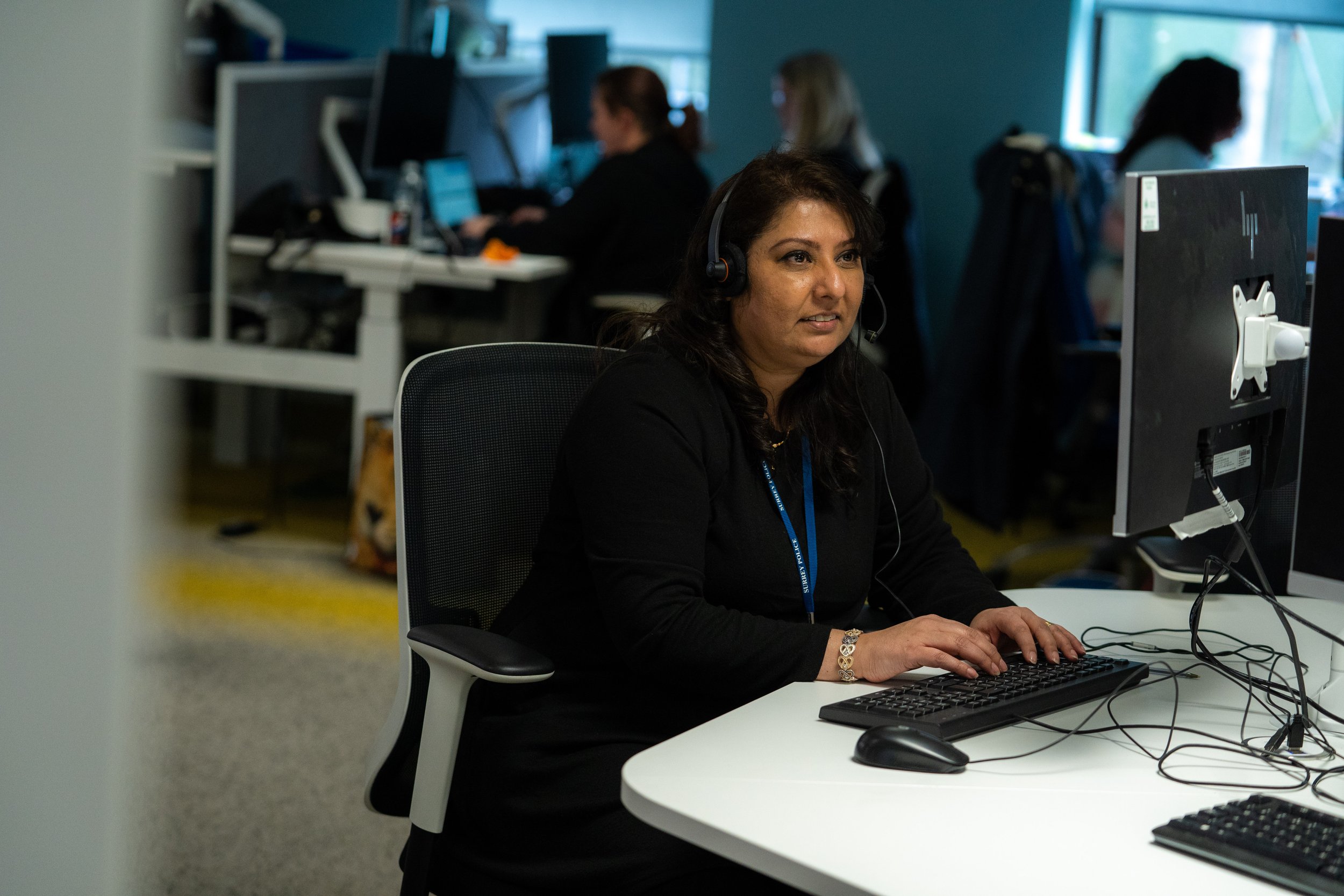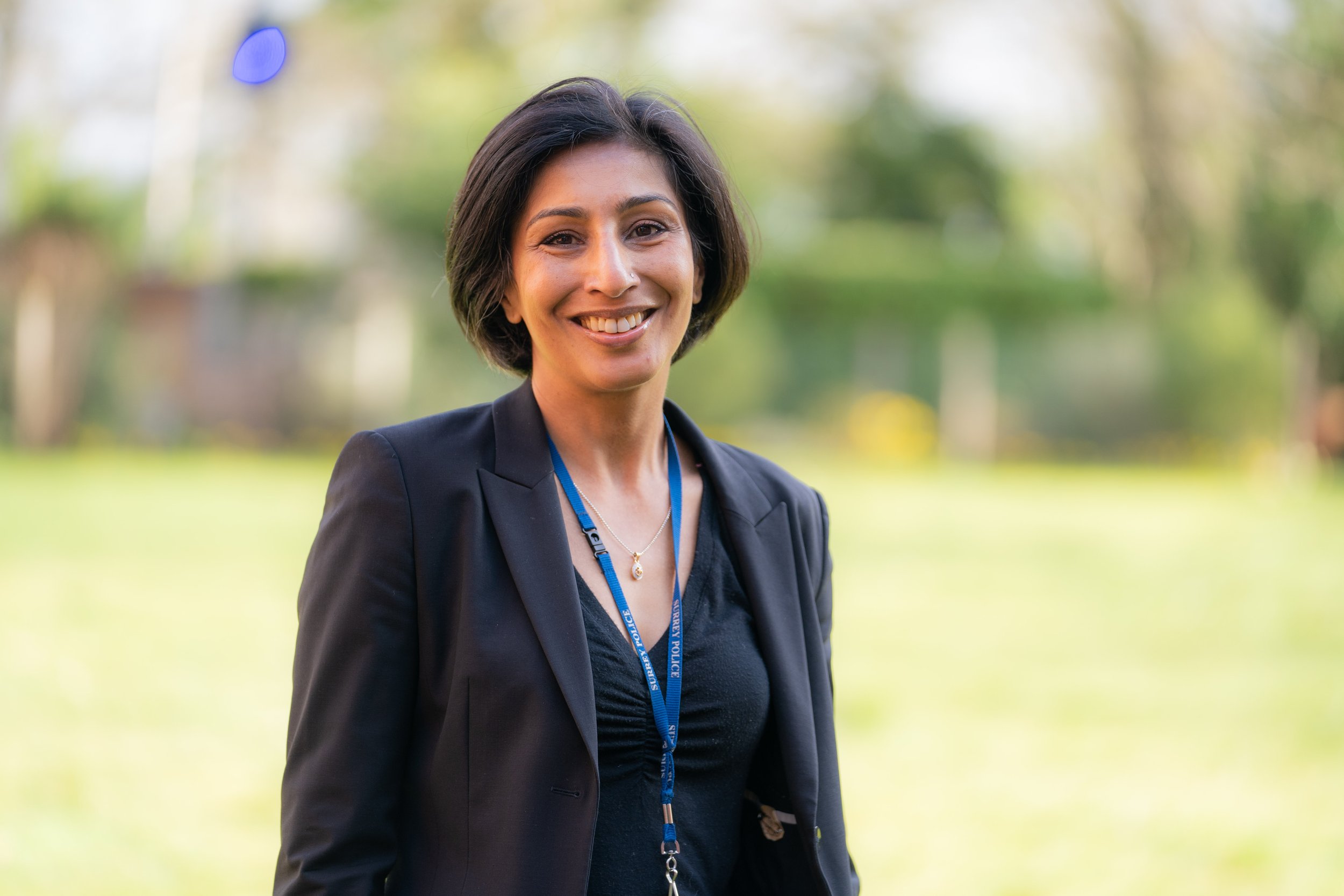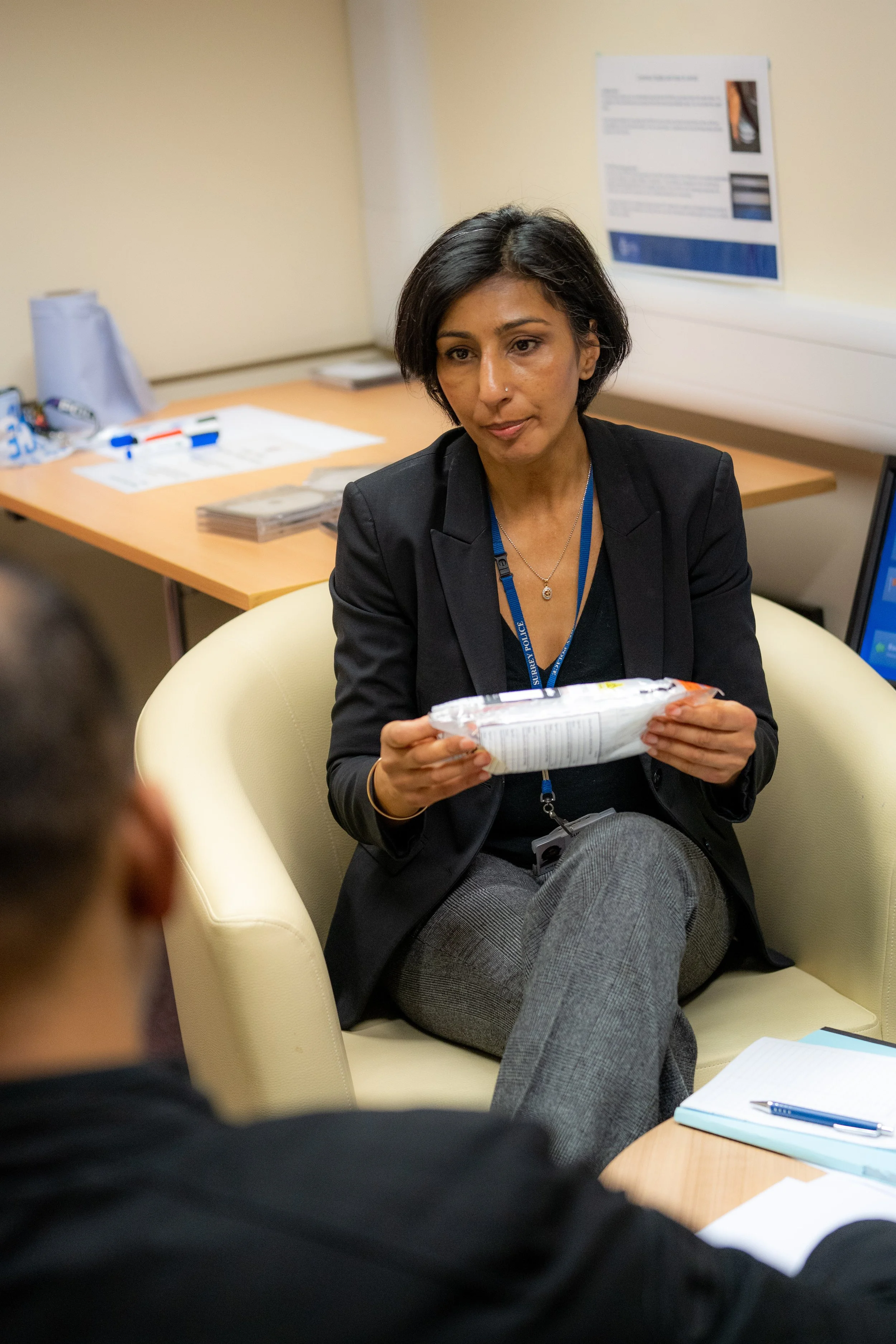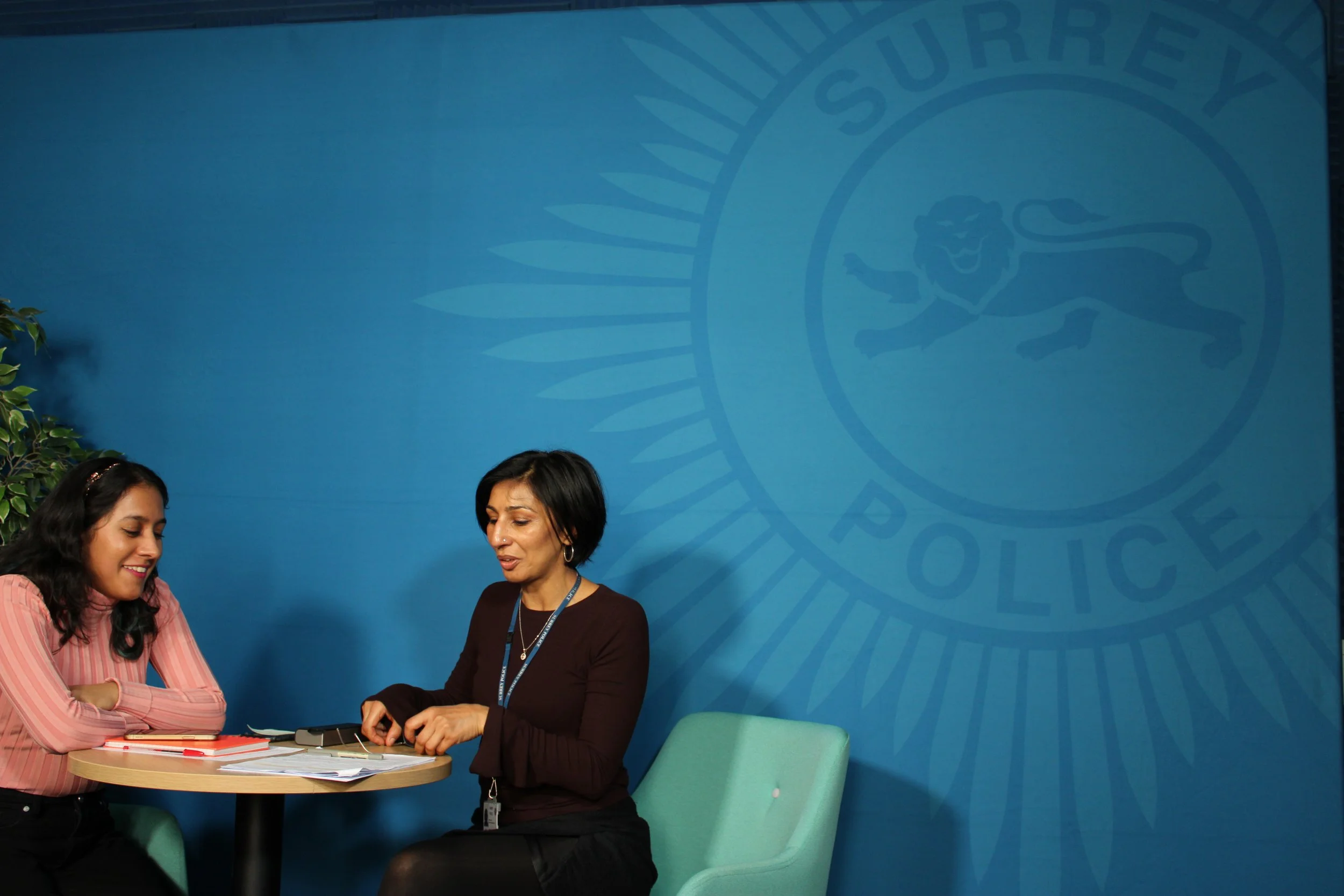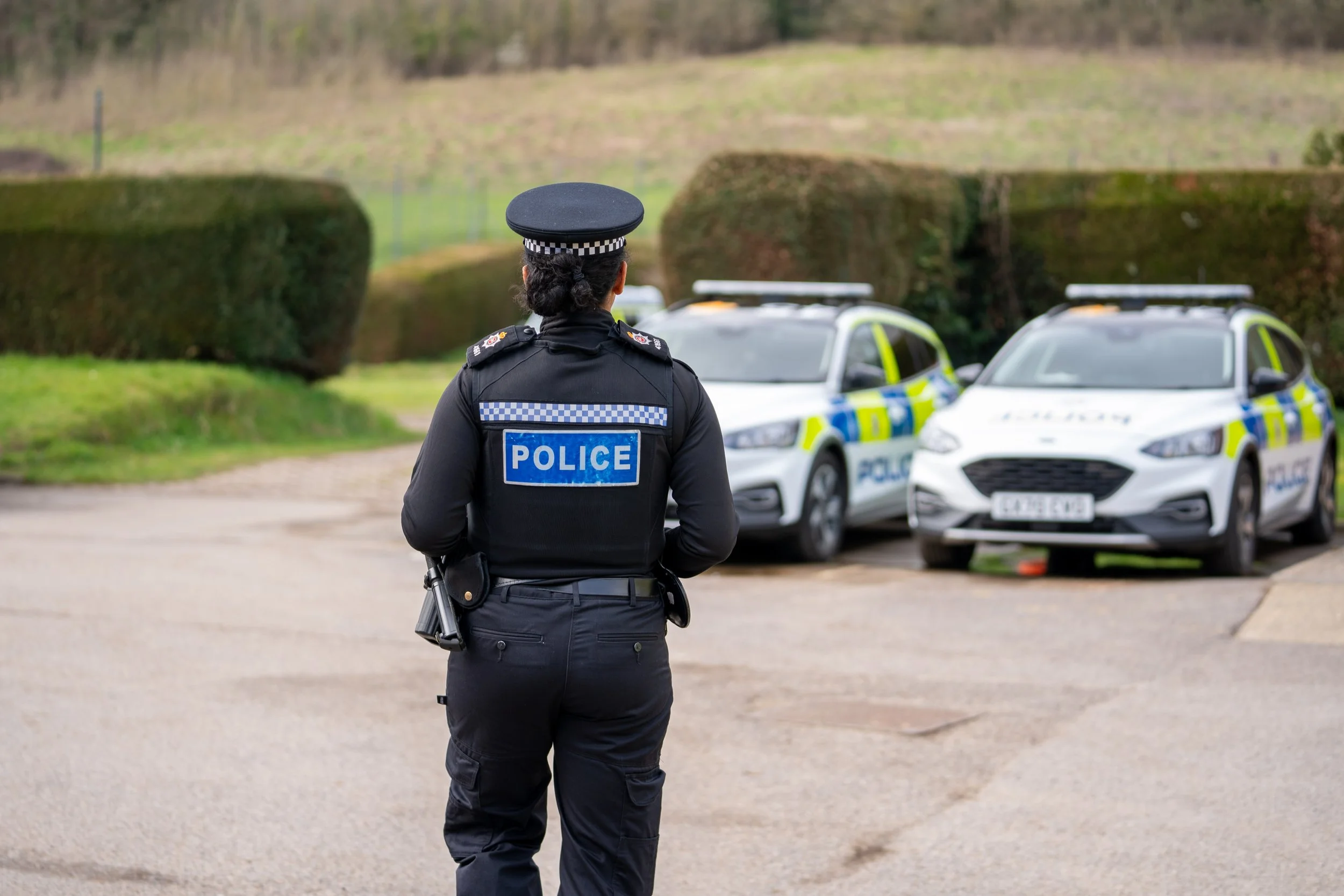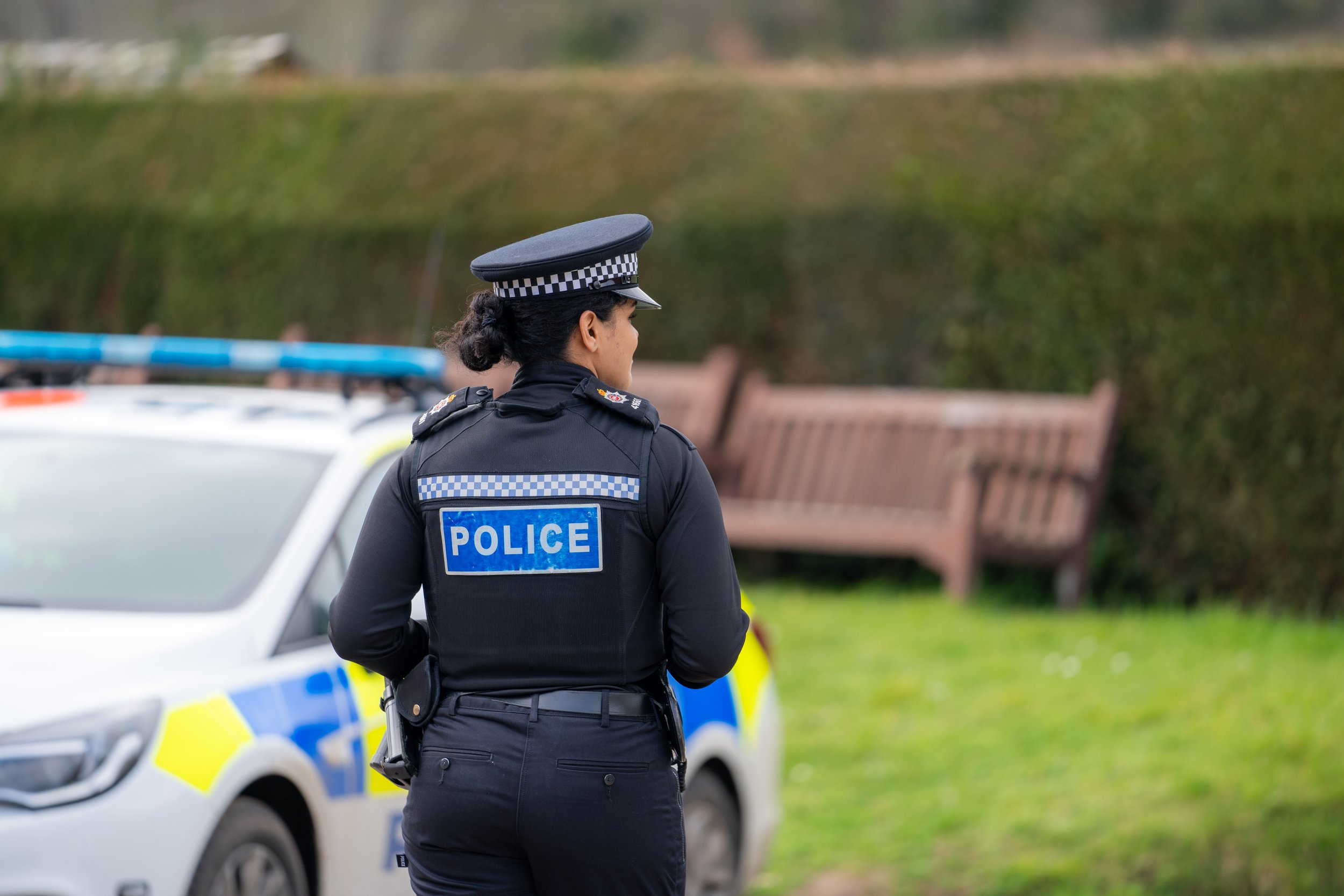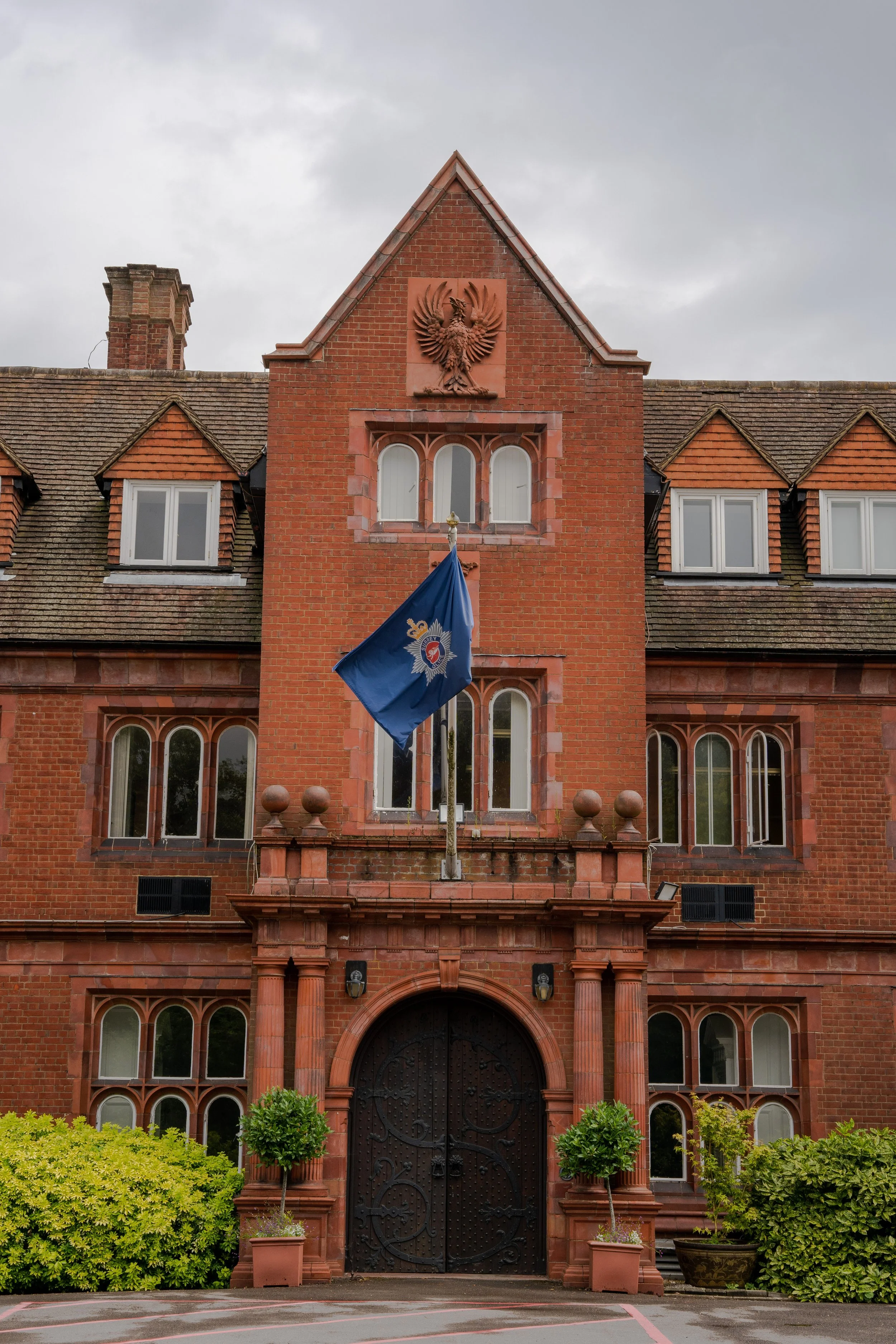Meet the South Asian policewomen changing the landscape
Policing in the UK has been under the spotlight lately. Like many professions in recent times, it has been thrust under the magnifying glass as the public, very rightly, examines its diversity and inclusion, institutional practices and the attitudes, privileges, and rights of those within it.
Whilst there is of-course much work to be done, that isn’t the full story: there has already been much progress. In Surrey Police, for example, there are South Asian women from three different generations who have affected real change and are continuing to have fulfilling careers. Curious, I sat down to interview them and find out more about being a British South Asian policewoman. And it was a truly eye-opening experience. Meet Avinash Dewitt, Mamta Nokes and Neha Prasad.
Avinash Dewitt © Charlotte Harrington & Sam Mack, Surrey Police - Corporate Communications and Engagement
The legacy of Surrey Policing: Avinash Dewitt, Compliance and Investigation Officer within Occurrence Management Unit:
Avinash Dewitt is a trailblazer. She joined Surrey Police in 1992 and has been a Police Officer there for 30 years, amassing quite the list of achievements. Speaking to her however, it is clear that her focus lies not on that, but rather, on helping the community she serves, no matter how hard it is, and this may be because just getting into policing was no small feat. A Hindu Punjabi, and the first of her family to be born in the UK, Avinash grew up in Bradford. Sharing the difficulties of her experience she says: “a lot of restrictions were put on women on what they could do and what the expectations regarding marriage were. And in my era - you're talking back in the 80s and 90s - they expected you to get engaged by the time you were 16. I suppose I was quite fortunate that I convinced my parents to allow me a longer engagement of four years. I got married when I was 21, which gave me the opportunity to go to college and further my education. But also, my parents knew that I wanted to follow a career in policing.” Avinash had her first brush with policing from career talks at school but says her teachers “ would basically expect people like ourselves to be in an office. I heard about the cadets but one of my teachers disallowed me and said, ‘it wasn't for you’. That just made me want to know a bit more about it and so, I did research and then defied what she said I was capable of.” It’s a trait, I notice, that shines strongly in each of the formidable women.
And so defying expectations, Avinash became a Special Constable with West Yorkshire Police in Bradford in 1988 - as soon as she turned 18. She loved it. “Every day was different and challenging so that really intrigued me and the satisfaction of knowing that I'm helping people,” enticed her, she says. At Surrey Police, Avinash did face challenges though: “ you're working with a lot of men who were misogynistic, especially with regards to culture. But you educate them. A lot of them were scared, so you say, ‘well, ask’ [because] how are you supposed to learn how to deal with a diverse community if you don't understand it yourself?” A clear example of this is when sergeants asked her to go and take a statement from the South Asian Gujarati owner of a local corner shop but she did not know Gujarati. When she met the owner however, she found he spoke clear English. “So when I came back and said ‘I don't know what the issues are with their English because it was perfect’, they were quite dismissive and said: ‘you have a better understanding because you're Asian’”.
Avinash Dewitt © Charlotte Harrington & Sam Mack, Surrey Police - Corporate Communications and Engagement
An achievement that Avinash recently came to learn of is that she is Surrey Police’s first ethnically diverse female officer but when I congratulated her, she said: “I never thought of it that way until someone pointed it out to me. I suppose I’m proud - it is history and when I reflect on it, I think it’s good, because I don't think a lot of people would have had the opportunity, if I hadn't done what I did years ago - to open the door for others to follow a career in policing, and to educate police officers on dealing with the community. And I suppose also showing the community it's okay to join policing.” The achievements that she is most proud of however, are her roles in helping to create hate crime policies and honour-based violence policies for officers within Surrey Police.
With honour-based violence policies, between 2007 – 2009, she says, “I was requested to complete research utilising my experience, and linking up with other organisations, such as Karma Nirvana, who were working alongside other police forces around the UK to help improve the laws and support surrounding this matter. I created policies and procedures for all officers in this Force to adhere to, which included awareness training as this was a new field that Surrey Police had no understanding of.” It was also during this time that Avinash worked with the Crime Management Unit, to assist officers with their case file investigations, inquiries, and interaction with other forces, as well as giving them advice. She then went into the Safeguarding Investigation Unit, dealing with cases like domestic violence, and child protection, before finally joining the Occurrence Management Unit as a civilian staff member.
Avinash Dewitt © Charlotte Harrington & Sam Mack, Surrey Police - Corporate Communications and Engagement
With hate crime laws and policy set by Surrey Police around 1998/99, she explains she “provided constructive views to ensure correct protocols and understanding are incorporated to ensure positive action is taken, when dealing with hate matters, including providing support to victims of crime.” Avinash has seen first-hand how these major policies have been instrumental in creating change. “When hate crime policies came in, I remember a young lady at the time had been verbally racially abusive towards me, and had been arrested for racial aggravation. As she was a teenager and it was her first offence of this nature and because she had admitted to the offence, the decision was made to caution her. And then about 20 years later, I had a phone call. This woman who I'd arrested years ago, called me to apologise because she felt so guilty for so many years. She thanked me for giving her a chance to understand what was right and what was wrong because she'd not had that education because of her background. She was made to feel that it was right.”
Reflecting on this experience and her career, she says; “we’re all raised with these biases that we don't realise. If you educate people and give them a second chance, there's a probability they'll take it. And I've always found that with policing, it's not all just about arrests. It's about listening, being patient and trying to think out of the box, on how we can try and resolve the situation. Because, as I say, it can make a positive or detrimental change to that person's life. I know, it's long hours but I think it's just a great feeling knowing you've done some good in the world.”
DC Mamta Nokes © Charlotte Harrington & Sam Mack, Surrey Police - Corporate Communications and Engagement
The present of Surrey policing - DC Mamta Nokes, Inclusion Advisor:
Having emigrated from Kenya in 1970, with her family, aged just six months old, Mamta grew up in Nottingham to Hindu Punjabi parents. She describes her childhood as “very confused as to identity” because “for me, it was two worlds: it was the Indian life and then it was this English life.” Whilst her family spoke English at home, worked outside and integrated with their neighbours, “those traditional values and beliefs were different. There was a big, Hindu community associated with the local temple and on Saturdays, we'd go to Hindi class, learn classical dancing, and put on Diwali festivals.” But that was weekends and, on the weekdays, she went to Catholic school (because “it was a good school.”) where not only was she not Catholic but she was also the only Asian. “I wanted to be like all my mates. I wanted to do what I liked. I wanted the freedoms that they had. So, I became like them, I didn't want to stand out as different.”
This desire not to stand out because of her ethnicity has followed Mamta throughout her career. “I never wanted anyone to turn around to me and say, you got that job because of the colour of your skin. I would be mortified. I work hard, and I want to get things based on merit. And I honestly can feel I've done that in this job and built up a level of expertise, and experience because of that work ethic.” This expertise and experience were hard won, however. Having done a degree in Public Administration, even though her passion was for History (“I felt that I had to do the right thing”), she moved back home and began working at her local council. “I thought, ‘this isn't me, I can't do this,” she explains. “I did toy with joining the police because they did graduate fairs but just dismissed it thinking, ‘we’re Indians, we don't join the police. That's not a viable career.’” But after university, the idea stayed with her for the next two years “so that's exactly what I did. And it was a rigorous process to get in at that time.”
DC Mamta Nokes © Charlotte Harrington & Sam Mack, Surrey Police - Corporate Communications and Engagement
Mamta moved to London and joined policing. Starting as a Response Officer Police Constable, she then worked her way up into being a Detective, where she has had a varied career in policing, holding roles in CID and homicide, a special investigations unit at the Met, as a Family Liaison Officer, and being detective trainer for all investigative courses at Surrey Police before becoming the Inclusion Officer she is today. She even set up the Forensic Imagery department at Wimbledon Police Station and was a Forensic Imagery Trainer at New Scotland Yard, creating and delivering training around CCTV retrieval and forensic Imagery. Mamta says it is her career in policing that has helped her find herself, embrace her identity and become confident in herself. In fact, there have even been cases where her identity better helped her serve the community. “One family came over from Pakistan after their son died. I helped them navigate through the criminal justice system, understand what their fears were and supported them to deal with the trauma of the death of their son. They even mentioned me in the eulogy, and it meant a lot to me,” Mamta shares.
Being able to serve the different members of her community has always been particularly important as Mamta began her career in policing after Stephen Lawrence’s murder which she cites as a catalyst for a cultural shift in policing. Stephen Lawrence was a Black British teenager from South East London, who was murdered in a racially motivated attack while waiting for a bus in Eltham on the 22nd April 1993, when he was just 18 years old. The fallout following the tragedy resulted in changes of attitudes to racism, the law and policing. Mamta says “It brought about understanding of cultural awareness, how important it was building upon the confidence of the community and understanding the impact on communities that such incidents can have. I learned that your culture is something to be celebrated. It's something to embrace. It's okay to be different.”
DC Mamta Nokes in interview with BAWM.
Yet policing is not an easy job and there can be extremely difficult days and nights. “It's hard and you feel for people - you are not immune to grief and you have to have a healthy outlook. This is where you get support from your own team because they understand what you're going through. You're all in it together, you work long hours and it's tiring but it's for a good purpose. We have wellbeing services, occupational health services, mentors and welfare support. You need a variety of people [in policing]; you need some people who are tough as nails and some people who bring a gentler side.” It becomes clear over the course of our conversation, just how vital it is for Mamta, and Surrey Police in general, that a variety of individuals be welcomed in and made to feel supported as they progress in their careers and find their space in policing.
There were times in the past when Mamta felt she wasn’t supported, particularly when it came to career progression. For example, one year whilst with the Met Police, Mamta was not spoken to or encouraged to apply for a promotion whereas a White male colleague who was less experienced and less qualified, was. Today, Surrey Police offers a programme called PALS or Professional Action Learning Sets, a mentoring programme to identify, retain and develop Black, Asian and minority ethnic officers and staff in Surrey Police. It is a three year programme giving individuals the opportunity to raise self awareness, self-confidence, and develop their leadership skills anchored to the Code of Ethics and Force values. “There's a group of us from minority ethnic communities from all around Surrey Police and Sussex Police. We work together and we are taught about ourselves, our strengths, our development, and leadership to get us ready for promotion, or leadership roles, or even just to understand where we want to go in this job," she says, “The police have a way to go, but we are doing the right things. Now, people can come in and they can be themselves. As society and communities continue to diversify, there is a need for the police to be representative of those communities and those whose voices are seldom heard. We need to progress those individuals who can represent different people and embrace what they’re bringing.”
DC Mamta Nokes © Charlotte Harrington & Sam Mack, Surrey Police - Corporate Communications and Engagement
Like Avinash, Mamta feels “lucky that the experience I have received in my career has meant I’ve been able to then teach other detectives. Coming towards the end of my career, I can use all that experience to try and make things better for the future, so we are more represented at those higher levels and across all levels within the police, not only as minority ethnic communities, but as women.” As a part of that goal, Mamta has been presenting to senior managers: “I’ve made recommendations on how to make change. They want to learn and know what they should be doing. And it's fantastic,” she shares. So, for other South Asian women looking to join policing, her message is: “Do it. This job has made me who I am. I have got convictions for people that have done wrong, that have broken the law. I have helped victims of crime. When I started my career, I wanted to make a difference. And I can honestly say that I have. In terms of things to do, you can be anything. You can be a computer whiz, you can work in the control rooms, you can be a member of police staff, you can be a detective, you can be a forensic scientist. There’s something for everyone.”
PC Neha Prasad © Charlotte Harrington & Sam Mack, Surrey Police - Corporate Communications and Engagement
The future of Surrey policing - PC Neha Prasad Police Constable:
Neha Prasad is a force to be reckoned with. Although tough as nails and fiercely determined, just like Mamta and Avinash, she can disarm you with her vulnerability. Her upbringing too, was similar to theirs but her beginning in policing highlights just how much progress has been made. At just two years old, Neha and her parents moved from India to the UK. She describes her South Indian parents as very traditionally Hindu people. “Policing wasn't really a career that I had considered up until adulthood, because it's not something that is considered a traditional vocation by a lot of South Asian families. So, it was a shock to my parents, when I told them that I was joining the police.” She continues, “I think they were a bit confused because I had an academic qualification so going into policing didn’t stack up. And I think it was them understanding that the police are a professional vocation that requires a specific skill set. I honestly think the best thing for them was just me telling them what my day to day was like when I joined.”
Since then, Neha’s family has embraced her career. “My mum said, ‘some of the auntie's want to see a photo of you in uniform’ and I sent them photos of me looking very happy at the end of the night shift. And they were like, ‘I've never seen such a happy police officer and it's so nice to see somebody that we know who's a police officer.’ It's breaking a barrier, which has been a historically challenging thing to do. I think that has been the biggest benefit to me joining because then people can go and tell others about it.” Although she began by doing a PhD in Psychology, she says, “in hindsight, I've always wanted to help people and do something that had a lot of variety. I think I joined at a time when I felt like I had sufficient life experience to bring to the role and make sure I could help people with just a little bit more empathy, more understanding.”
PC Neha Prasad © Charlotte Harrington & Sam Mack, Surrey Police - Corporate Communications and Engagement
And it is that lived experience as a South Asian woman in particular, that has helped her in some cases. “It's such a powerful moment when you can connect to [people from the South Asian community] on that level that some of your colleagues might not be able to. And this job, a lot of it is about building that rapport so that you can make them feel safe enough to confide in you or ask for your help. I think that's been very satisfying. Whilst Surrey is quite a homogenous county, that's not to say there aren't pockets of diversity within it. And it's imperative that no matter where or how big they might be, that we have people on hand to help make those connections with those communities and understand those issues in greater depth. I think they feel more reassured that somebody can understand perhaps community specific problems. And maybe as an indirect result, they may feel safer because of it,” she shares.
Her career so far in policing has “been absolutely fabulous! Obviously, there will be days that are very challenging and they will get to you just because of what's happened - you see so many things that most people don't see within a lifetime. But the thing I love about the police is the teamwork and the camaraderie. I know from my personal experience, there will always be good debrief sessions if an incident requires it, and there'll always be the opportunity to speak to people and digest it in your own way. Just to be very frank, there will be members of the public who will notice that you look different. They will say things and I have been publicly, racially, verbally abused twice and I can still remember both of those occasions. But what I remember above that is the support I got from my colleagues and from the organisation as a result of what happened. And each time you are treated with kindness, with empathy and with respect. The support is just phenomenal. I have really enjoyed my role as a response officer,” she says.
The beautiful Surrey Police building. © Charlotte Harrington & Sam Mack, Surrey Police - Corporate Communications and Engagement
If reading this has piqued your interest in becoming a police officer, then there are three ways you can get involved:
If you don’t have a degree, then there is the PCDA scheme or Police Constable Degree Apprenticeship. The program is fully funded and at the end of the three-years you get a degree. The training is combined with on the job learning because you will be doing your degree whilst being a Response Constable, as well as academic learning.
If you have a degree, then there is the Degree Holder Entry Programme. It’s very similar to the PCDA and is also fully funded. The academic requirements are at a slightly different level, just because you already have a degree. You work towards a Graduate Diploma in Professional Policing Practice whilst you train as an officer .
If a degree or degree apprenticeship is not for you, then there is the ‘Initial Police Learning and Development Programme’(IPLDP+), It is designed for people with or without a degree. You don’t get a qualification at the end of the 2-year probation period, however there is a requirement to achieve operational competence by the end of this period. It makes it more accessible to all who want to come into a policing career. The route offers a blend of practical “on-the-job” experience and classroom-based learning which will equip new recruits with the skills and experience they need to meet the demands of modern policing.
If being a detective and getting involved in investigations interests you more, there is also the Detective Degree Holder Programme which allows for fast track entry into the detective world.
There are a wide range of opportunities available at Surrey Police including police staff roles, and volunteering and if you would like to find out more about the opportunities available then please visit https://surrey.police.uk/careers.
Surrey Police also has a fantastic Positive Action team that support candidates from diverse backgrounds through the recruitment process. A member of this team can guide you on a 121 basis about the application and assessment process and ensure you have all the required knowledge and confidence before you embark on a policing career. For more information about the support available through positive action, contact positiveaction@surrey.police.uk.
You can listen to Neha and Mamta talk about their experiences growing up, how it influenced their career choice and the positive impact their identity has on the work they do, below or on Spotify or Apple Podcasts.
The beautiful Surrey Police building. © Charlotte Harrington & Sam Mack, Surrey Police - Corporate Communications and Engagement


